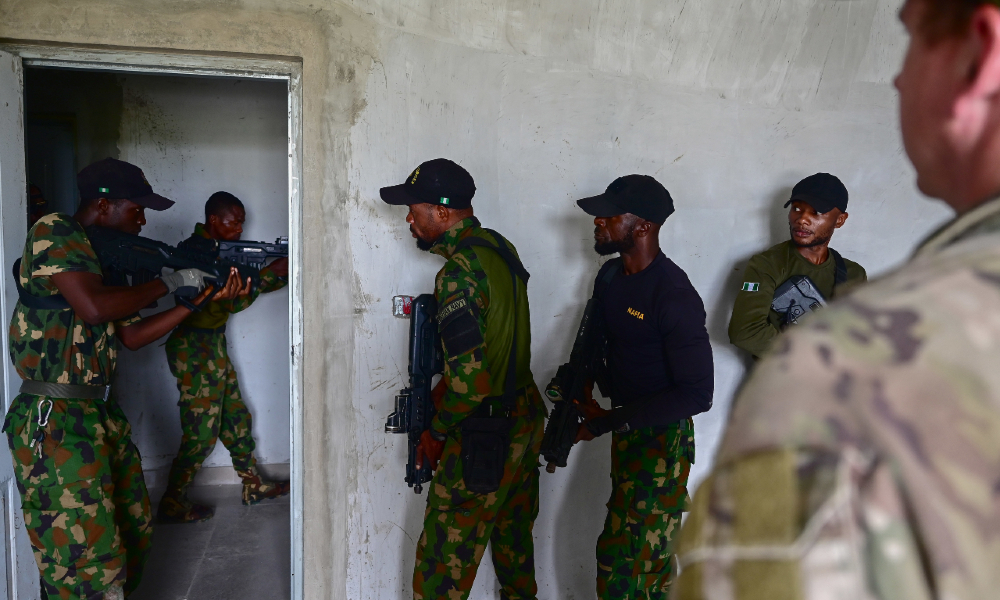Article III, the Framers, and <em>al Bahlul</em>: A Reply to Steve
Steve’s post arguing that the military commission conviction of former bin Laden aide Ali Hamza al Bahlul for conspiracy to murder civilians violates Article III does not do justice to the Framers’ carefully considered view of the interaction between Article III and Congress’s war powers.
Published by The Lawfare Institute
in Cooperation With

Steve’s post arguing that the military commission conviction of former bin Laden aide Ali Hamza al Bahlul for conspiracy to murder civilians violates Article III does not do justice to the Framers’ carefully considered view of the interaction between Article III and Congress’s war powers. In critiquing both the government brief and the amicus brief Jim Schoettler and I filed in the D.C. Circuit for former JAGs, former national security officials, and scholars, Steve passes over the Court’s observation in Ex Parte Quirin that the Framers simply did not regard military tribunals as “courts” triggering the strictures of Article III. Quirin noted that the Framers, who were familiar with military commissions because of General George Washington’s use of such tribunals in the Revolutionary War, viewed commissions as an “important incident” of the power to authorize and wage war, rather than a forum under Article III’s ambit. Steve’s view would compromise Congress’s war powers, while offering little additional protection to the jury trial and grand jury rights that Steve rightly reveres. Steve, the government, and amici actually have a lot in common. Steve concedes that Article I confers broad power on Congress to establish military commissions in the course of an armed conflict. Steve’s brief also admits that military commissions have jurisdiction over a wide range of offenses when those commissions hear charges based on violations of martial or occupation law. Steve could hardly do otherwise: as Milligan noted and Justice Stevens confirmed in Hamdan I, military commissions are a “necessity” in these contexts because of the breakdown of “civil authority.” Steve is also right that there are some common-sense limits to the jurisdiction of a commission hearing charges based on violations of the laws of war. The government and amici concede that such law of war commissions cannot hear the ordinary criminal charges that courts of necessity may hear when civilian courts aren’t open. Rather, charges heard by law of war commissions must have some reasonable relationship to the belligerency itself. However, once that condition is met, further limits based on Article III are foreign to the Framers’ scheme. To understand Quirin’s view of Article III and law of war commissions, it’s useful to consult America’s foremost law of war scholar, William Winthrop, whom the Quirin Court and Justice Stevens in Hamdan I cited repeatedly. After serving in the Civil War, Winthrop write his monumental treatise, Military Law and Precedents. Volume 2 of Winthrop’s study defines violations of the “laws and usages of war” as including a wide range of acts committed in the context of armed conflict, including “trading or dealing with enemies.” Trading with the enemy is not a violation of international law. However, as our amicus brief explains, trading with the enemy is an offense that Winthrop believed a state could criminalize under its domestic law, selecting military commissions as the appropriate forum. Nothing in Quirin suggests that the Court disagreed with Winthrop on this point. Indeed, Quirin is clear that both military courts of necessity and law of war commissions “are not courts in the sense of the Judiciary Article.” A more sweeping view of Article III’s constraints on Congress’s war powers would produce anomalous results. Under Steve’s view, the former bin Laden aide al Bahlul, who has no U.S. ties, would gain greater protection under Article III than would a citizen of Missouri who aided the Confederacy during the Civil War. That result seems perverse, since al Bahlul is a foreign national belligerent whose acts the en banc D.C. Circuit found “directly relate” to the September 11 attacks. This anomaly would also undermine Congress’s exercise of its war powers. Martial law and occupation commissions have a limited geographic scope. Restricting commission jurisdiction outside these narrow contexts would reduce accountability for global terrorists. Steve’s view would preclude Congress from establishing military commissions to deter an individual, like al Bahlul, who conspired to murder U.S. civilians during an armed conflict. That conspiracy is reasonably related to an acknowledged violation of international law: the completed murder of civilians. Congress could reasonably find that waiting for a completed act of murder poses too great a risk, and that the prospect of military commission prosecution would enhance deterrence. The Framers could hardly have believed that Article III bars Congress from supplementing deterrence in this way. Steve’s view is also not necessary to protect the rights guaranteed by Article III and the Bill of Rights. The rights to jury trial and grand jury presentment are protected by reading Article III to permit commission jurisdiction over conduct by a belligerent during an armed conflict. As Milligan makes clear, Article III’s prime role here is assuring that the government does not misuse military commissions by trying ordinary citizens outside the criminal justice system. In drafting Article III, the Framers did not intend to restrict Congress’s ability to establish commissions to try noncitizen belligerents with no U.S. ties engaged in armed conflict with the United States. As future Chief Justice Charles Evans Hughes explained almost a century ago, the ability to wage war implies the ability “to wage war successfully.” Reading Article III as embodying Steve’s view would erode that power. In contrast, amici’s view avoids this anomaly while protecting our rights.





